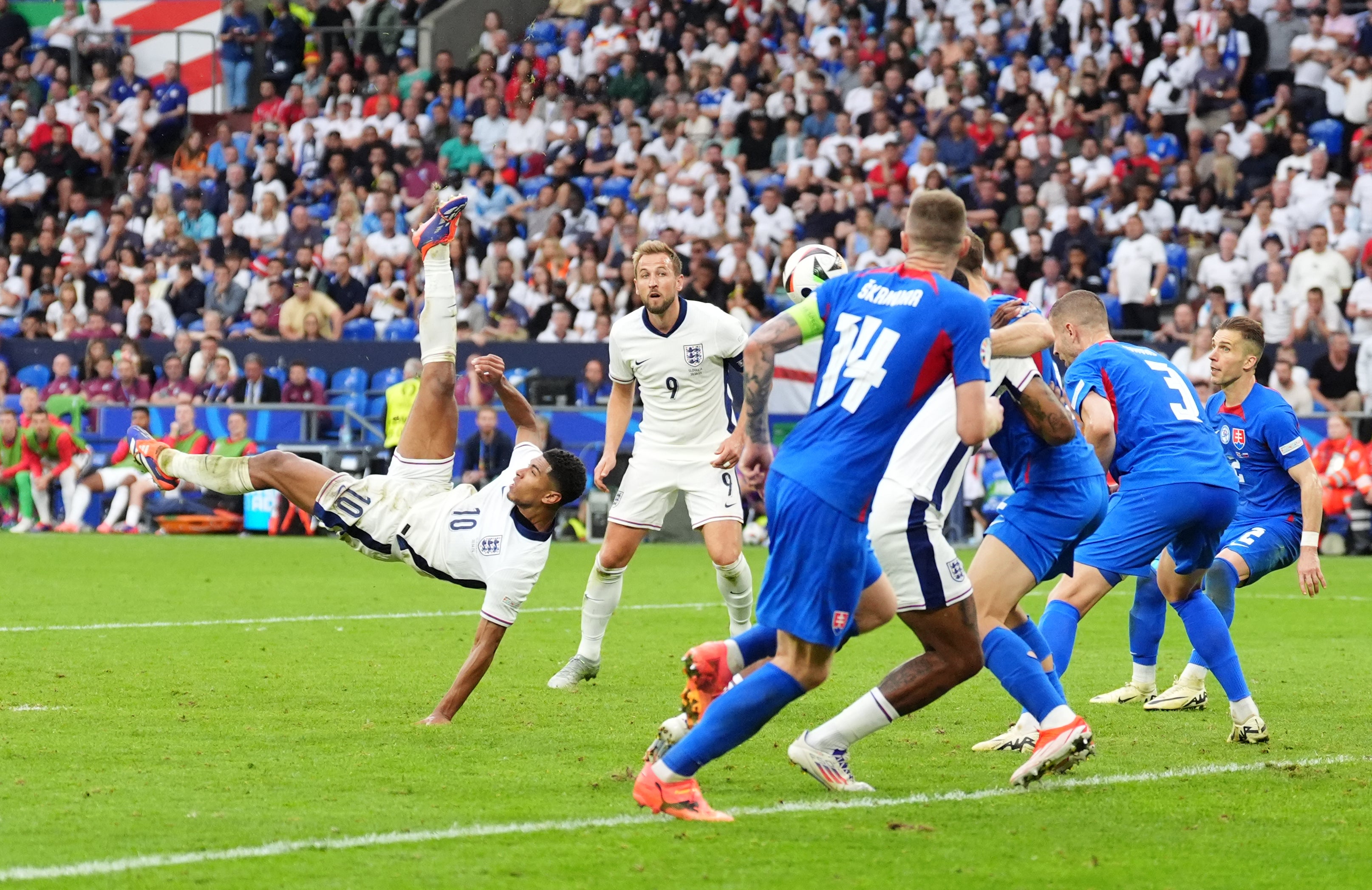England making it to the Euro 2024 final wasn’t luck – there is a secret ingredient to their success
England’s stirring finishes have seen them through the knockout rounds to the final of Euro 2024, writes Karl Matchett, to reveal another side to Gareth Southgate’s team beyond their obvious talent


Lots of things are late in Germany this month. The trains would be the first and most obvious one, and perhaps the most consistent option too.
But soon after the creaking public transport system – which went beyond bent and firmly into broken territory in Dortmund in the hours following the Euro 2024 semi-final – on the list of oft-repeated late occurrences would be England goals.
Gareth Southgate’s side have not always thrilled at the tournament this summer, but that hasn’t meant a lack drama – far from it, thanks to those final-minutes efforts.
Without them, they would not have progressed beyond any of their three knockout games: Jude Bellingham’s last-16 bicycle kick, Bukayo Saka’s quarter-final equaliser and now Ollie Watkins’ last-minute winner in the last four.
As with anything else in the condensed world of international football, these goals can be used to shape arguments in many different ways, but perhaps the Three Lions boss summed it up best when he referred to traits within the squad which have seen them come closer together, work collectively and, again and again, find a way.

“Character. I think definitely we didn’t deserve to be behind, it was a moment [of brilliance]. We’d started the game really well. with the ball we were exceptional, caused a lot of problems [for Netherlands],” Southgate said.
“I was really pleased with the quality of our play – it would be a long time since England had 60 per cent possession against a side from Netherlands. It shows the modern England way but also the resilience in the group.”
Resilience, character, mentality.
Southgate has brought up those traits at regular intervals during the course of the tournament, particularly in the knockout stages – and why wouldn’t he? It’s hard to argue against England’s penchant for overcoming setbacks and difficulties, even if the fact they get themselves into those situations can at times be criticised.
If the tactics have been derided, the starting players questioned, Southgate himself doubted and even their opponents dismissed by some, the simple guiding principle of doing whatever it takes to win cannot be taken lightly.
As a one-off occurrence – Italy’s leveller against Croatia to go through the groups, say – late goals are an exceptional addition to any game, swinging emotion as much as momentum and changing the course of the tournament.
Ollie Watkins has trained like that every day and he’s waited for his moment
But to find as many ways to do it late on as England have, in such a short space of time? That has to be something more.
Mentality encompasses so much, though. The character and resilience that Southgate speaks of, yes, but also expectation among the players themselves, almost a certainty which lingers beyond the 90 minutes that they can, and will, find a way.
The other intriguing aspect is of how many variations in England’s late goals there have been. These aren’t all set-pieces or hail Mary balls into the box, or even from a defined area of the pitch or player type: a cross, a solo dribble, an incisive pass and stunning finish. Add in the perfect penalty shootout and Harry Kane’s extra-time header against Slovakia, and the variance becomes even more impressive.
Starters and substitutes have found the net. Strikers and support players. All types have contributed and each have deserved their chance, Southgate pointed out.
“Ollie Watkins has trained like that every day and he’s waited for his moment. No matter his frustration at not playing, he’s been ready. The whole group have,” he said.
“Half of them have never been to a tournament but they’ve bonded so well, they all have each other’s back and tonight was a great example of that.”

Certainly, the sight of the bench flooding onto the pitch when Watkins buried his winner was a testament to that ethos and togetherness.
But it’s in the everyday moments that Southgate also sees that spirit, with Bukayo Saka’s performance in particular drawing praise.
“It was a complicated game as they were changing the way they build up, so we had to change how we defend. We kept looking for different solutions but the players were brilliant. [Bukayo] Saka was a wing-back, then had to go into midfield then he was defending as a winger,” the manager explained.
And if that’s the type of job for the team one of the squad’s best players is willing to put in, to either create his own moment or allow someone else to, it cannot be a surprise that everyone else is following suit, on the training pitch and, when their chance comes, in matches.
Late goals aren’t always enough by themselves, and relying upon them naturally has its drawbacks. But aside from the manic celebrations and tournament progressions they yield, perhaps for Southgate and England they are something else entirely: proof of the spirit in the team as much as the quality, proof that this time they have the mindset to finish the job.
Join our commenting forum
Join thought-provoking conversations, follow other Independent readers and see their replies
Comments
Bookmark popover
Removed from bookmarks